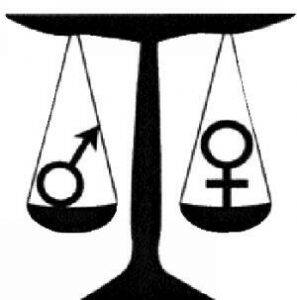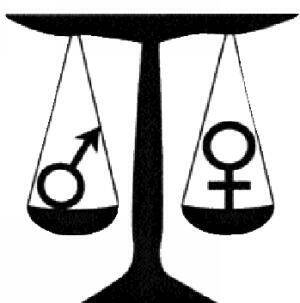 By KATRIN BENNHOLD, The New York Times
By KATRIN BENNHOLD, The New York Times
PARIS — When Alexandra Pascalidou, a Swedish-Greek writer and television host, joked on a Greek cooking show that dad rather than mom might make dinner for the children, her producer, she recalled, yelled into her earpiece to “cut that feminist nonsense.”
In Italy, a string of sex scandals involving Prime Minister Silvio Berlusconi did not stop his camp from winning regional elections earlier this year, while further along the Mediterranean coast, the Spanish media routinely obsess more about the defense minister’s outfits than her policies.
Europe’s southern fringe, indebted and uncompetitive, has long been the euro zone’s weak link. But besides a sunny climate and shaky economic fundamentals, it also shares a long-entrenched machismo that is costing it dearly. As it turns out, the share of adult women in the paid workforce in the region lags men by almost 20 percentage points, compared with 12 points across the European Union, 9 in the United States and only 4 in Sweden.
Sexism, of course, is not the cause for Europe’s sovereign debt crisis, and in the short term, the euro’s prospects depend more on the right mixture of fiscal austerity and monetary stimulus than on sisterhood.
But in the longer term, women could well hold the key to overcoming a fundamental economic weakness that plagues not just Southern Europe but much of the rest of the Continent as well: An aging population and a shrinking workforce that is threatening to explode pension and health care budgets.
At stake is the ability of the world’s “lifestyle superpower” to sustain its cushy post-World War II entitlements like early retirement, free medicine and generous jobless benefits — in short, the treasured European welfare state itself.
“If Europeans want to maintain their social infrastructure, they have to get better at integrating women into the labor market,” said Stefano Scarpetta, deputy director of the employment and social affairs directorate at the Organization for Economic Cooperation and Development, the research arm of the world’s leading free-market democracies.
As elsewhere in the developed world, women already make up the majority of university graduates in Europe. Luring more of them into paid work would provide multiple dividends: raise economic output, particularly in services; foster greater consumption; and add more taxpayers today and tomorrow.
Kevin Daly, an economist at Goldman Sachs in London, reckons that fully closing the gap between male and female employment rates in the 16 countries sharing the euro would lift gross domestic product by as much as 13 percent; in Southern Europe, the gain would be closer to 20 percent. By contrast, raising trend productivity levels in the euro zone to the level in the United States would result in a 7 percent rise in G.D.P., Mr. Daly calculates.
“The potential gain from raising female participation is significantly larger than from raising productivity,” he said.
That is not to say that governments shouldn’t try to raise both. Indeed, sometimes the policy levers are identical, Mr. Scarpetta of the O.E.C.D. said, pointing to rigid hiring and firing rules in Greece and Italy that protect some unproductive workers and keep more talented women out of a job.
Similarly, while it challenges social traditions, removing tax incentives that keep women at home or raising the retirement age for women where it is lower than for men (Italy and Greece’s public sector, for example) would provide economic benefits at little or no fiscal cost.
Even generous subsidies for child care pay off: A 2002 study by the German Bundesbank found that public investment in day care in Germany on balance increased government revenues as more mothers returned to work.
And perhaps surprisingly, encouraging women to work out of the home also encourages them to have more babies, thus yielding more future taxpayers. Decades of experience in the Nordic countries show that once women are no longer forced to choose between employment and children, both go up.
Sweden, at the forefront of women’s liberation, boasts a female employment rate of 70 percent and a birthrate of about two children per woman, the highest in Europe along with Norway and France.
In Italy, a mere 46 percent of women work, and the birthrate is stuck at around 1.3. (In case you’re wondering: Sweden’s debt-to-G.D.P. ratio is expected to fall below 37 percent this year, while Italy’s future generations will have to shoulder the carrying costs of a whopping 115 percent burden.)
Southern European countries have the most to gain from courting female labor — precisely because the pool of women outside the job market is so large.
In Greece, the employment gap between the genders is almost 25 percentage points. In Italy it is 22 points; Spain, at 14 percentage points, is a lot closer to the E.U. average but still falls short. Portugal does better, with a 10-point gap, owing in part to its specialization in the textile and garment industries.
As an alternative to endless austerity, some politicians in the region have begun to see the economic potential of policies to help close the gap.<
“Gender equality is no longer just a human rights issue, but an economic necessity,” said Maria Stratigaki, who is in charge of gender equality in the Greek government. She is using the budget crunch in her country to lobby for more “gender-budgeting” — rules that ensure men receive no more resources from the state than women.
Prime Minister José Luis Rodríguez Zapatero of Spain was the first in the region to put the issue on the agenda, appointing a cabinet that is half women, passing anti-discrimination legislation and requiring companies to appoint more women to their boards.
At 53 percent, Spain’s female employment rate remains below the European average. But if its women over 45 have some of the lowest participation rates in Europe, those under 30 are not that far from Swedish levels.
The first thing Ms. Stratigaki did when she was appointed last November was translate Mr. Zapatero’s gender equality laws into Greek and distribute them in government circles.
“It might be difficult to turn Greece into Sweden — at least right away,” she remarked. “But maybe we can start by becoming a little more Spanish.”
Perhaps the current crisis, said Ms. Pascalidou, who moved from Athens back to Stockholm four years ago, will be remembered as a turning point for working women, just like labor shortages in Sweden in the 1960s served as a catalyst there.
“It’s a window of opportunity,” she said. “There’s nothing like a good economic argument to sell gender equality.”










